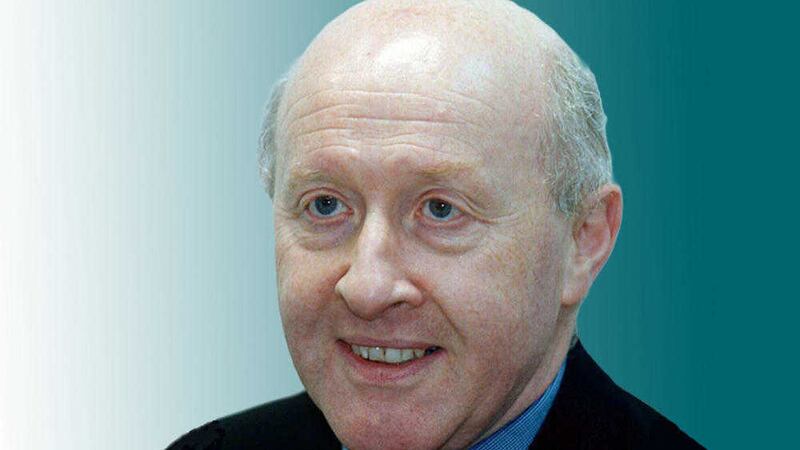It’s thirty years since Garret FitzGerald and Margaret Thatcher signed the Anglo-Irish Agreement at Hillsborough Castle on November 15 1985 while a unionist mob bayed outside. Until the Good Friday Agreement it was the most momentous occasion between the Irish and British governments since partition.
The key feature of the agreement was that it gave the Irish government the right to a say in the north’s affairs. Dublin was entitled to put forward ‘views and proposals’ on any northern matters not devolved and of course in 1985 nothing had been devolved. Secondly it established a permanent secretariat first located at Maryfield beside Palace barracks Holywood manned continuously by Irish and British civil servants.
The two governments were required by the treaty ‘to make determined efforts’ to resolve any differences on these views and proposals. It was the nearest the Irish government could get to joint authority and despite British protestations to the contrary necessary to try to placate unionists, it was a diminution of sovereignty. The agreement was a public recognition that the north is not exclusively an internal UK affair.
There was another important message in the agreement and that was the determination of the two governments to override disputes between unionists and nationalists in the north if the disputes threatened the good relations between London and Dublin: that relationship was paramount. In 1985 the evidence of that determination was first obvious in overriding the unionist veto on any movement whatsoever. So Lady Hacksaw faced down mass unionist demonstrations, strikes, attacks on police, boycotts, resignations, you name it.
However, that relationship between the two governments did not prevent the Irish government openly criticising decisions made by the northern secretary. The then Irish Foreign Minister Peter Barry publicly espoused nationalist discontent when he felt it necessary to demonstrate the Irish government’s concern on certain matters, usually security force misbehaviour.
In recent years the Irish government has gone too far in the opposite direction. Contrasted with the part Barry, also a Fine Gael minister played, Charlie Flanagan’s contribution has been feeble and muted. Of course with matters like welfare reform he has no role but on the vexed issue of the legacy of the past which has been the sticking point for some weeks, what has Flanagan said to encourage nationalists the Irish government shares their concerns about the role of successive British governments in covering up the nefarious activities of their regular soldiers and the UDR?
Does Flanagan have nothing to say about the fact that the British government refuses to release documents about the Dublin-Monaghan bombings forty years ago? They were carried out under a Fine Gael/Labour government like the present one which shamefully did not press the British for an explanation.
Instead of making representations about attempts by the British government to hide behind ‘national security’ which is anything a proconsul wants it to be, the last statement we had from Flanagan was another Little Sir Echo of the British line namely that he shared the same view as our proconsul that ‘a comprehensive agreement’ must be made by the middle of the week. Still, at least it’s an improvement on his first intervention in the talks in September 2014 when he told Sinn Féin they had to accept welfare reform. And you thought he had no business in internal northern affairs?
You have to wonder all the time if Flanagan’s involvement is driven by the horror of the prospect of Sinn Féin winning twenty-five seats in next spring’s Dáil election rather than for the benefit of northern nationalists as a whole. Thirty years ago it was unimaginable that the SDLP could be overtaken as the major party of northern nationalists. Indeed Garret FitzGerald was able to sell the Anglo-Irish Agreement to the British as a way to stem the rise of Sinn Féin.
Southern parties, and particularly Fine Gael, have never come to terms with a genuinely national party also representing northern nationalists with leverage in Leinster House. The Anglo-Irish Agreement was constructed at a time when the SDLP was the voice of the Dublin government in the north.
It’s time this Dublin government listened to the voice of nationalists in the north like it or not rather than trashing the messenger.









